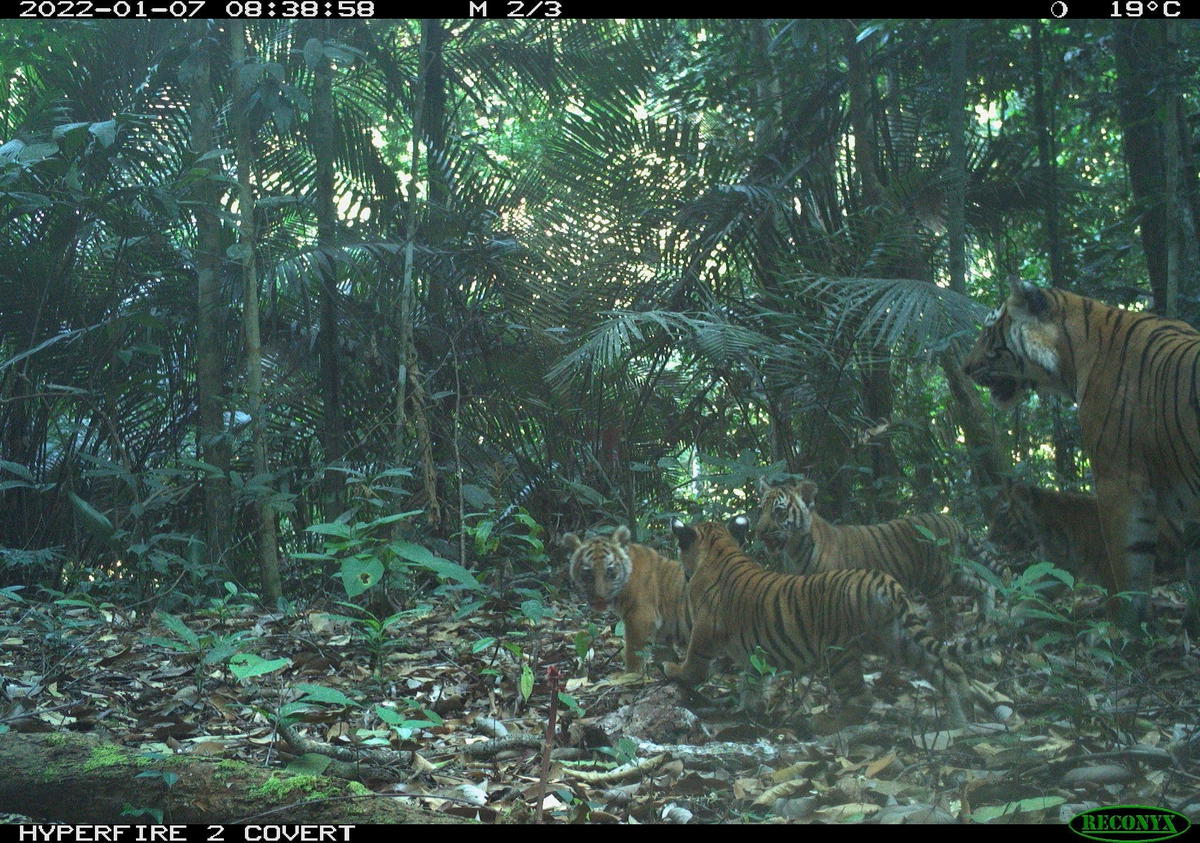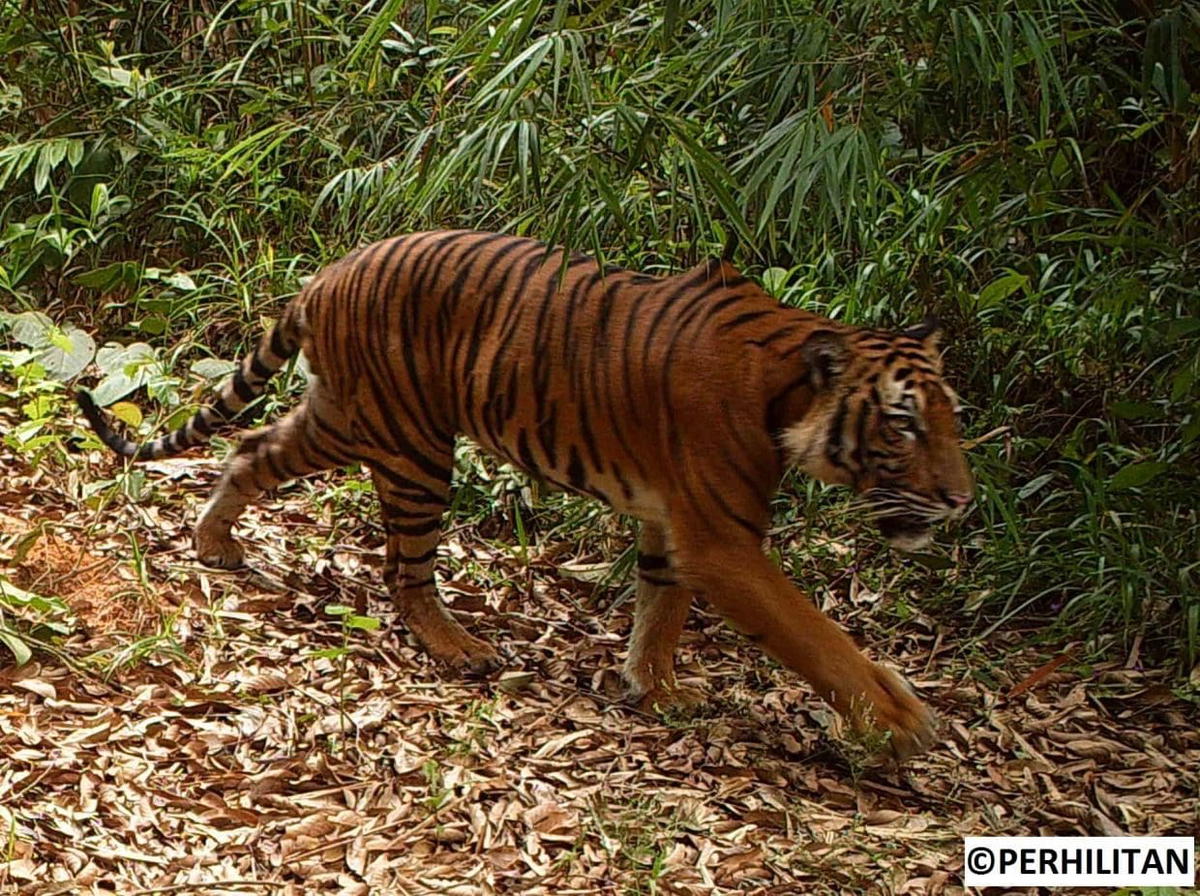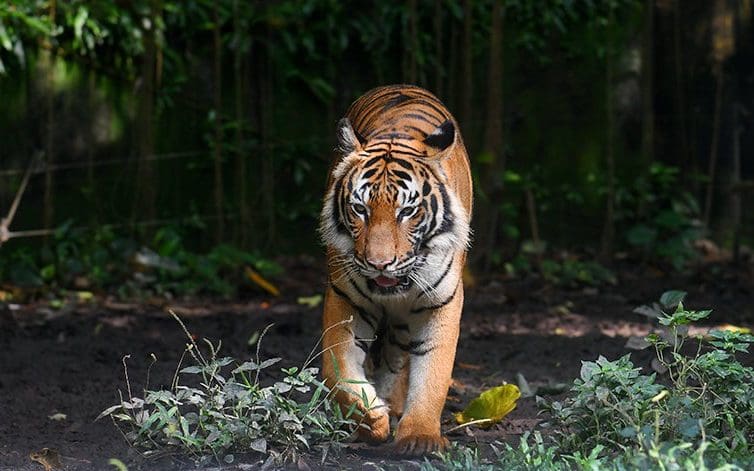PETALING JAYA – Wildlife advocates in the country were gifted with the best kind of news after four tiger cubs were seen roaming together in a jungle in Perak with their mother, reported WWF-Malaysia.

This was a positive turn of events for Malayan tigers, who have seen a drastic drop in population for the past 70 years due to deforestation and only have less than 150 left in Malaysia currently.
Wildlife biologist Kae Kawanishi previously told Free Malaysia Today that the Malayan tiger’s chances of survival was close to zero after four subspecies went extinct during that period.
Given the population trend over 100 years, the Malayan tiger would be very less likely to survive the next 100 years.
Renewed hope for the tigers
WWF-Malaysia Executive Director and Chief Executive Officer Sophia Lim expressed her joy over the cubs’ appearance, adding that it was the perfect lead-up to Global Tiger Day celebrations this month.
“With the tiger population currently numbering fewer than 150 in Peninsular Malaysia, this latest development renews hope that this critically endangered species can be saved from the brink of extinction.
It is all the more crucial that we continue our patrols, to protect these cubs and their mother from the existing threats of poaching and loss of habitat.

Perak State Parks Corporation (PSPC) director Shah Redza Hussein also rejoiced over the news and said that the footage has proven that Malayan tigers can survive and grow as long as there is a suitable habitat and sufficient prey.
“We need sustained and stronger anti-poaching efforts to ensure that these cubs are safe from poachers and can survive into adulthood,” he added.
Continued efforts in protecting tigers
Aside from providing a sustainable environment for the tigers, the Department of Wildlife and National Parks of Peninsular Malaysia, WWF-Malaysia’s anti-poaching teams and PSPC’s Orang Asli Menraq Patrol Unit have also come together in monitoring the 117,500-hectare Royal Belum State Park.
“It’s a collaborative effort. This sighting is proof that with a viable population ― though small ― tigers can still repopulate if their habitat, food and safety are ensured,” said Hussein.
And their collaboration has shown positive results too, where the poaching of Malayan tigers dropped close to zero in the Royal Belum State Park for the past two years, according to The Star.

On top of that, the government has also passed stricter laws for wildlife crimes which are expected to be implemented this month such as the Wildlife Conservation Act 2020 (Act 716), which carries a fine of up to RM1 million.
There’s also the establishment of the National Tiger Task Force headed by the Prime Minister and the Wildlife Crime Bureau under the Royal Malaysia Police which will contribute in curbing poaching activities.
Netizens were overjoyed by the news and hoped that the tiger cubs will grow healthily in a safe environment.
a malayan tiger mother with four cubs were sighted early this year on this camera trap set by WWF.
— freyr (@notsoaidil) July 5, 2022
poaching in a perak state park has also dropped to almost 98% thanks to a patrol unit consisting of indigenous peoples. this renews great hope for malayan tiger conservation! pic.twitter.com/RALasms5ZR
Read also:

Cover Image via WWF-Malaysia and Malaymail
Editor: Sarah Yeoh





